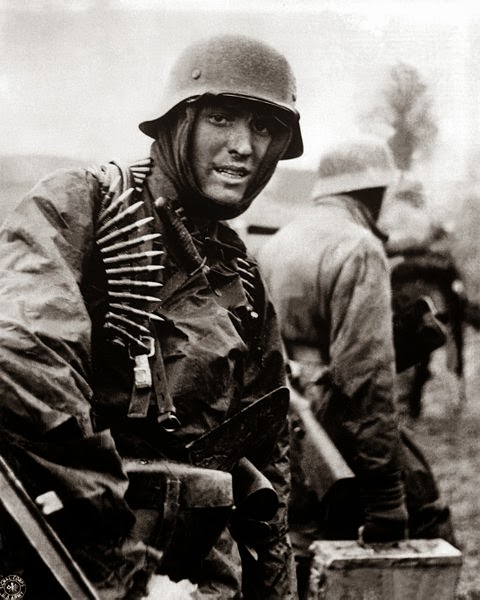By 19th December, as senior Allied commanders met in Verdun, it was known that Bastogne had ben bypassed and would be subsequently beseiged by the 2nd Panzer, 26th Volksgrenadier, and the PanzerLehr of 67th Panzer Corps. (The seige took place on the 21st morning)
Eisenhower asked General Patton how much time he would take to move his Third Army and counterattack. Patton replied, (to much disbelief) that he needed only 48 hours. In truth, he was anticipating movement orders and had ordered his army to begin moving towards Bastogne before even reaching the conference.
Meanwhile, Bastogne was facing a tough time with supplies depleting. Medical officers and equipment had been captured. But thankfully weather cleared over the next few days, and supplies (mainly Ammunition) were airdropped. The perimeter of Bastogne was held all through the German attacks.
The German commander Heinrich von Luttwitz offered an "honorable surrender" to General Anthony McAuliffe, the commanding officer of Bastogne. McAuliffe replied to their offer in one word, "Nuts" This reply became historically famous. The XLVII Panzer Corps launched concentrated attacks at the western perimeter but were unsuccessful, and soon on 26th January, General Patton's 4th Armored division spearhead broke through the seige to Bastogne.
Weather conditions had improved by 23rd December, allowing Allied air-attacks. Bombing raids were carried out on supply points and infantry was machine-gunned by attacking P-47 Thunderbolts. Allied air support also supplied Bastogne with the necessary supplies including volunteer surgeons, who were flown in by military glider.
By 24th December, the German advance was effectively stalled short of the Meuse. They had run out of rations and fuel supply was critical due to being cut off from supply lines. German losses upto now were light, notably in Armor (with the exception of Joachim Peiper). In the evening, General von Manteuffel recommended a withdrawal of all forces. But it was rejected by Hitler.
The Ardennes Offensive was also significant because it was the first incident where black soldiers fought shoulder-to-shoulder with their white counterparts. Facing shortage of personnel, Eisenhower ordered for black volunteers to come forward. Till then, the black, or "colored" soldiers had been serving as drivers and support staff, (with a few exceptions of tank destroyers and Army Air Force pilots) but when Eisenhower's orders came through, over 2000 of these soldiers volunteered to fight.
 Southern attacks: Erich Brandenberger
Southern attacks: Erich Brandenberger
No comments:
Post a Comment